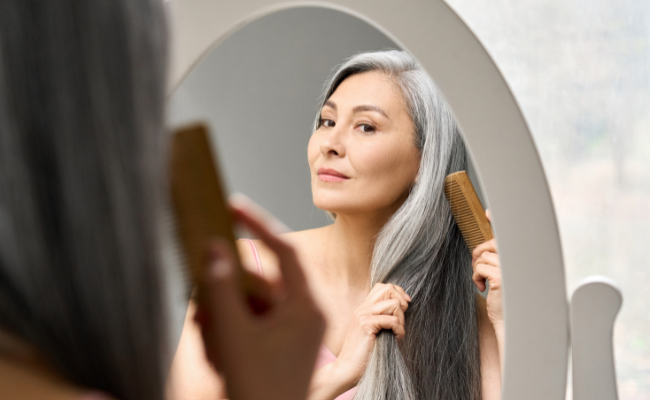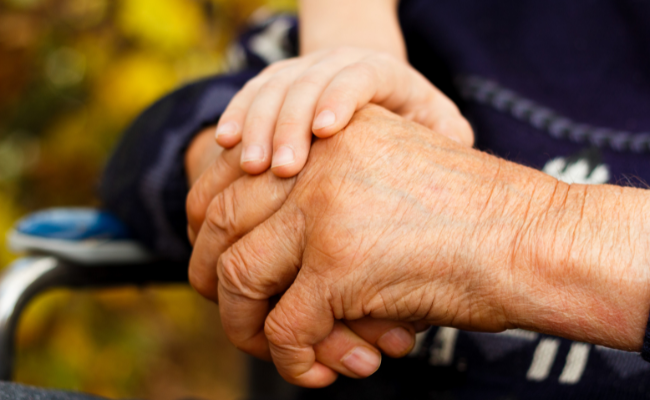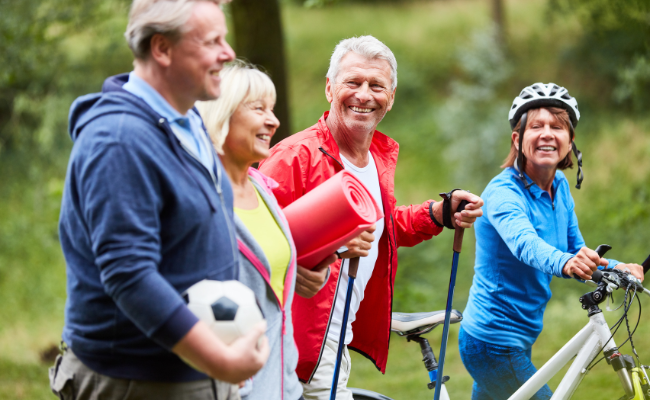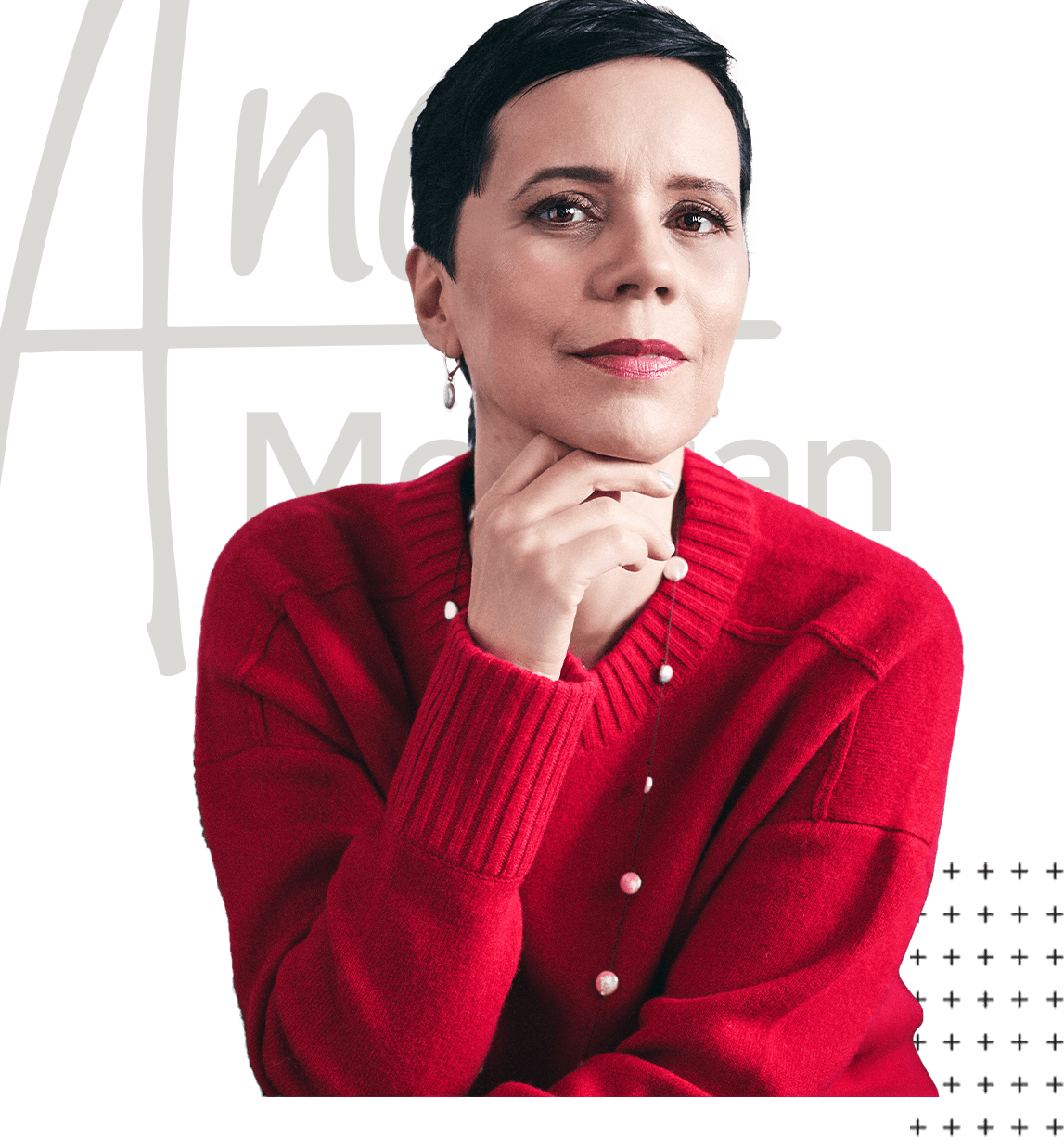Rethinking Aging with Phyllis Ayman
“Wine, when aged, is way more expensive. We value antiques because they represent a different age and tell a different story. Why don’t we apply the same thing to people?” – Phyllis Ayman
I had the pleasure of speaking with Phyllis Ayman, a Wall Street Journal and USA Today best-selling author. She is also a speaker, trainer, and host of the Senior Straight Talk podcast. She is also a speech and language pathologist with over 40 years of experience working with families in long-term care.
We discuss:
- Overcoming the Western World’s ageist mindset
- What brought Phyllis to where she is today
- Taking responsibility for maintaining vitality
Overcoming the Western World’s ageist mindset

America’s obsession with youth is no secret. From beauty companies hocking anti-aging products to the acute lack of older actors appearing in relevant media, everywhere you look, elders are excluded.
Why this hyper-fixation on teens and young adults? Why are we taught to fear our age as we grow older?
There are beliefs that once a person reaches 50 or higher, they’re done, they’re at the end of a journey. That may be true—but note one distinct detail about that saying: The end of a journey, not the journey—the ending of a chapter, not the book.
“More and more people are changing in that regard. They realize there are possibilities. AARP used to stand for the Association of Retired Persons, and it's changed to Real Possibilities,” Phyllis shares. “There are tremendous possibilities moving forward, whether you're post-retirement, or have a deep-seated passion that you always wanted to pursue—the world is your oyster.”
Phyllis recently turned 70 years old, and she feels that this is the best time of her life with much to do and accomplish still, not despite, but rather because of, her age.
The Western World continues to creep towards a better relationship with older generations, even with media and marketing blindspots. Some college campuses across America opted to build senior housing on their grounds, opening the door for inner-generational connection and sharing.
“People have tremendous opportunities from both sides of the equation—young people to interact with older people, and get to know their experiences and learn from their wisdom, and see that older people are still vibrant, they can go to classes, they want to learn,” Phyllis says. “And then for the older people to also learn from the younger people, it's just such a win-win.”
Changing the way we view older people starts with young people.
What brought Phyllis to where she is today

Phyllis witnessed her mother's devoted care for her grandmother, who had Parkinson's and required assistance. While her parents were away on a two-week-long anniversary trip, Phyllis and her sister stepped in to care for their grandmother.
“I'll never forget the first day I went,” she says. “My grandmother was such a proud woman that the reason my mother started to take care of her was because she wouldn't leave her apartment because she had a walker. She was too embarrassed for anybody to see her with it. I walked into this nursing home, and it was a horrible sight.”
That experience drew Phyllis to later work in a nursing home, putting in 40,000 hours in long-term care, where she witnessed all of the disparities we’d—unfortunately—expect to find in a nursing home. “I believe that the root cause of people not getting the care they deserve is because we don't value them as older adults,” she continues.
This belief clicked further into place while watching the Oscars one year, and Kirk Douglas was rolled out onto the stage in a wheelchair with slurred speech, as he had survived a stroke. The audience gave him a standing ovation.
“It hit me at that time, ‘Well, if he wasn't a well-known actor, and somebody just saw him sitting in a wheelchair somewhere with slurred speech in a nursing home, nobody would be standing up and saying Bravo,’ But those people deserve the same respect and dignity that he did,” she explains.
Instilling healthy respect for elders
Looking back to the scarcity of elders in the media, it’s not hard to see why younger generations generally lack interest in those older than them. The recent Indiana Jones film aside, it’s a rare sight to see a senior taking on the big screen in a meaningful way.
Even more so is true about portraying romantic relationships—where are the older couples who have shared many adventures? Where are the strong, solid relationships built on history and commitment, not only hormones and insta-love?
The entertainment industry has made a clear stance on where they think elders belong—off-screen. But that is not the only path.
Taking responsibility for maintaining vitality

There are ailments out of our control, yes—we all know this—and we can’t account for every circumstance. However, there is a fair amount within our control when giving ourselves the best shot at aging gracefully and maintaining independence.
For Phyllis, that takes the shape of a Well-Being Action Plan. “I do believe that it is our responsibility as an older person to embrace strategy so that we can age as healthily and gracefully and vibrantly as we possibly can,” she shares.
We pour billions of dollars into healthcare and medical care, addressing what we’ve come to associate with the aging process. Those ailments are often avoidable with the proper strategy.
“Of course, things happen to people, but intellectual stimulation—social connections, learning new things—these all help our brain so that we don't decline,” Phyllis says.
“Obviously, there are conditions that we can’t help. But there are conditions we can help.”
Taking the time to invest in activities, getting the proper amount of sleep, engaging with new environments, and aiming for proper nutrition, are all ways we can support vibrancy and keep cognition sharp.
“We really live in three homes: We live in our mind, our body, and our abode. We take care of our abode, right? We clean it, we straighten it out, we do whatever we can to keep it in the best possible shape. Are we doing the same thing for our bodies and our minds? It's really an inner game,” Phyllis continues.
If we can use the control we have to create a better life as we age, we can use that vitality to connect with younger generations and build bridges through time.
Where are you at in your life journey? What chapter is over, and what does your next chapter look like?
Be sure to check out Phyllis’ full episode for further insights around rethinking aging, and learn more at PhyllisAymanAssociates.com!








